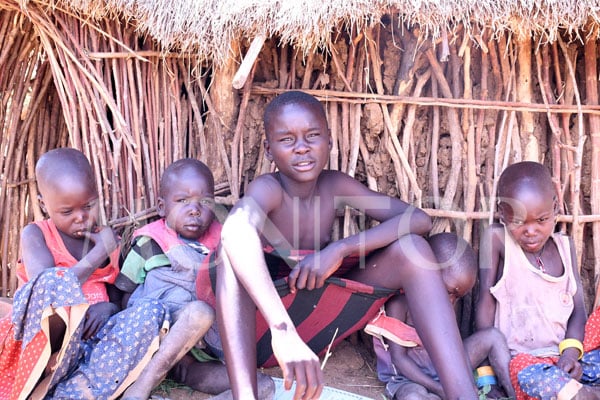PLE performance calls for increased investment in primary education

Uneb Chairperson Prof Celestino Obua (left) hands over PLE results to the Minister of Education and Sports, Ms Janet Museveni (right) at State House in Nakasero on January 25, 2024. PHOTO/FRANK BAGUMA
What you need to know:
- The issue: Primary leaving examination
- Our view: As we talk of the need to prescribe solutions, the one most important prescription would at this point in time be to inject more resources.
On Thursday the Uganda National Examinations Board (UNEB) released results from last year’s Primary Leaving Examinations (PLE).
There were two downsides though. The first was that 12,323 out of the 749,254 pupils who registered for the exams did not write them.
The other was that 88,269, 38,346 boys and 49,926 girls, out of the 736,931 candidates who sat for the exams were ungraded.
That means that they cannot pursue secondary or vocational education.
The Minister for Education and Sports, Ms Janet Museveni, while addressing herself to the matter of candidates who did not write the exams, called for prescription of “solutions that prevent” the continuation of the trend.
Right call, but it should be for purposes of addressing the short comings that are causing poor performance especially in the area of Universal Primary Education.
A look the number of children who enrolled for primary education at the beginning of the calendar year 2017 will not doubt reveal that the numbers were much higher than the 749,254 who registered for the said exams.
This therefore calls for addressing the issues that make it impossible for children to remain in school until the entire primary education cycle is completed.
At the end of last year, the Auditor General released a report of a value for money audit on the primary education sector, which revealed shortages of infrastructure which are spiralling towards crisis proportions in UPE schools across the country.
The report revealed that 67 pupils are forced to share a single latrine stance and that girls and boys were in some cases sharing the same latrine facilities; up to 77 pupils sharing a classroom and; 4 pupils sharing a desk. The shortages of infrastructure spreads to teacher’s houses and facilities such as staffrooms, kitchens and fields of play.
All those amenities are vitally important in as far as creation of safe and optimum learning conditions. That means a higher attention and retention span for learners and encourages school attendance for the teachers and learners too.
Like the Auditor General pointed out, lack of infrastructure is grossly affecting the delivery of the programme objectives, including the quality education, pupil performance, dropout rates, staffing and infrastructure in the UPE schools.
So as we talk of the need to prescribe solutions, the one most important prescription would at this point in time be to inject more resources into the provision of key infrastructure in our primary schools and making more money available in the form of capitation grant per pupil per term.




